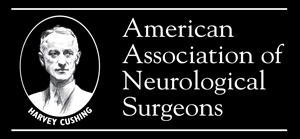Becauseof the aging population and higher life expectancies worldwide, a large portion of neurosurgical patients are receiving antithrombotic treatment (ATT) for various reasons. Balancing the benefits and risks of continuing or discontinuing ATT in neurosurgical patients is challenging.1,2On the one hand, patients undergoing noncardiac surgery in need of ATT possess a high risk for intraoperative cardiovascular complications and in-hospital mortality.3On the other hand, neurosurgeons are often reluctant to operate under the influence of ATT or to continue ATT within the setting of traumatic brain injury (TBI) or spontaneous intracranial bleeding due to the possibility of hemorrhagic complications.4Historically, neurosurgical patients have been excluded from all large trials assessing the management of ATT given the high risk of hemorrhage; hence, guidelines to instruct clinicians are missing.5
Controversies also exist when assessing the benefit of ATT as part of the management of specific vascular diseases (e.g., aneurysms, cavernomas, and stroke) or endovascular procedures (e.g., flow diverter implantation). Similarly, uncertainty exists regarding the benefits and risks of prophylactic ATT (e.g., heparin) or tranexamic acid, potentially reducing the risk of thromboembolic or bleeding events in the perioperative phase.
In this issue ofNeurosurgical Focus, a wide range of studies discussing the controversies of ATT for various neurosurgical pathologies and for different age groups were assimilated. The issue opens by discussing the management of TBI patients under the influence of ATT, followed by new concepts of early and ultra-early resumption of ATT after elective cranial surgery. ATT in the setting of pediatric patients is the focus of further studies, followed by studies looking at ATT within the scope of vascular malformations, aneurysms and aneurysmal subarachnoid hemorrhage, spinal surgery, and endovascular treatment of stroke.
Our goal was to successfully highlight the importance of this topic within the neurosurgical community, showing its growing role in almost all age groups and subspecialities of neurosurgery. It is our hope that this issue will serve as a basis for and encourage others to conduct large clinical trials in an area in need of improved clinical data and guidelines.
Disclosures
Dr. Macdonald reported personal fees from Acasti Pharma, Idorsia Pharmaceuticals, and CSL Behring, outside the submitted work.
References
-
1 ↑
RychenJ,SaemannA,FingerlinT,et al.Risks and benefits of continuation and discontinuation of aspirin in elective craniotomies: a systematic review and pooled-analysis.Acta Neurochir (Wien).2023;165(1):39–47.
-
2 ↑
GreuterL,UllmannM,MarianiL,GuzmanR,SolemanJ.Effect of preoperative antiplatelet or anticoagulation therapy on hemorrhagic complications in patients with traumatic brain injury undergoing craniotomy or craniectomy.Neurosurg Focus.2019;47(5):E3.
-
3 ↑
OscarssonA,GuptaA,FredriksonM,et al.To continue or discontinue aspirin in the perioperative period: a randomized, controlled clinical trial.Br J Anaesth.2010;104(3):305–312.
-
4 ↑
GreuterL,RychenJ,ChiappiniA,MarianiL,GuzmanR,SolemanJ.Management of patients undergoing elective craniotomy under antiplatelet or anticoagulation therapy: an international survey of practice.J Neurol Surg A Cent Eur Neurosurg.Published online May 11, 2023.doi:10.1055/s-0043-1767724


